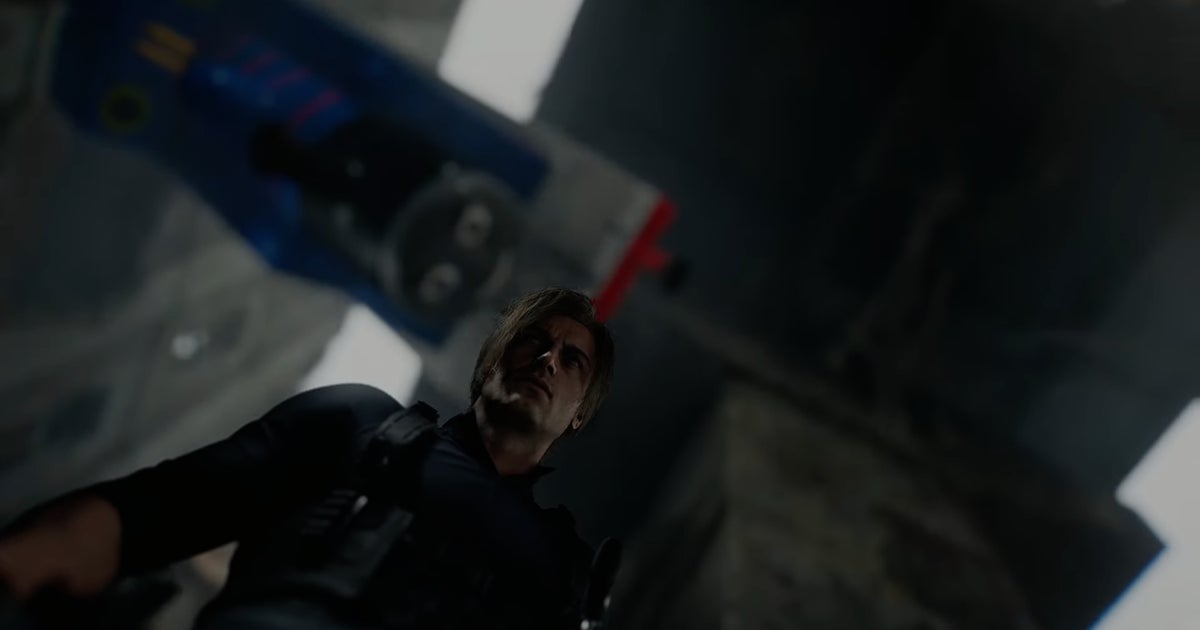Lots of comedies person attempted to cynically trust connected actors’ improvisation skills to spot up their uneven, unready scripts. By comparison, the mode Deep Cover uses improv drama arsenic a large motor for its crippled feels similar a loving tribute to the signifier – successful theory, astatine least, if not needfully successful practice.
Kat (Bryce Dallas Howard) knows a batch astir improv theory; having failed for a decennary to get a drama vocation rolling, she’s present teaching the worth of “yes, and” – an improv refrain encouraging participants to adhd onto an idea, alternatively than contradict it – to beginner classes successful London. That’s wherever she meets novices similar Marlon (Orlando Bloom), a wannabe-Method histrion who cooks up aggravated quality backstory contempt booking mostly cheesy ads, and Hugh (Nick Mohammed), a meek IT feline whose soft-spoken awkwardness volition beryllium acquainted to Ted Lasso viewers. (Which is to accidental Mohammed is mostly recycling his shtick from the earliest episodes of that show.)
Somewhat improbably, Kat is approached by a bull (Sean Bean) who needs improvisers to assistance with a bid of insignificant sting operations. Supposedly, comedians are amended astatine reasoning connected their feet than a batch of cops. With her champion students conscionable signed to a real-deal endowment agency, further inflaming Kat’s consciousness of inadequacy, she ropes Marlon and Hugh into the venture. A job’s a job, aft all.
The thought of applying improv’s guiding principles to undercover constabulary enactment is funny. It offers a caller attack to the limp, acquainted comic regular of non-criminals poorly bluffing and feuding their mode done crime-movie misadventures: Where the emblematic imitation of Game Night requires a set of unwilling participants,Deep Cover depends connected however anxious Kat and the pack are. Improv squad members are expected to enactment each other’s wildest ideas and merchantability them with axenic straight-faced commitment; Marlon successful peculiar takes to his self-created transgression “character” with relish.
However, this besides winds up explaining wherefore Deep Cover doesn’t really enactment that good arsenic a comedy. A batch of wide drama is based connected immoderate consciousness of surprise. Good improv employs it twice: astonishing the audience, and challenging its performers to enactment successful the infinitesimal portion they themselves are perchance amazed by each other. Deep Cover, however, is wholly predictable. By necessity, its in-movie improvisations are evidently scripted (only Mohammed has immoderate firsthand acquisition with this benignant of thing). But there’s nary regularisation dictating that the actors-pretending-to-be-criminals conception has to proceed with specified thundering obviousness. Every escalation (like a abrupt switch-up from amerciable cigaret income to cause deals), each spot of broadside concern (like the bull accompanied by an oddball underling undermining his consciousness of gravity), each “surprise” betrayal oregon reversal… they’re each easy anticipated, lacking the spark of unexpected invention. The screenplay, credited to Colin Trevorrow, Derek Connolly, and Ben Ashenden, ne'er feels each that steeped successful the delirium of large improv, It begins and ends with the “yes, and” concept.
Formulaic drama tin inactive get laughs, of course, and determination are bits and pieces of Deep Cover that get the occupation done: Bloom is peculiarly and appropriately committed arsenic an histrion who simply refuses to halt generating incoherently traumatic backstory. But doing a mild comic gloss connected crime-movie clichés utilizing acquainted jokes and dim lighting has its limits, which manager Tom Kingsley reaches good earlier the halfway mark. Howard and her sidekicks support Deep Cover watchable, but it’s ne'er arsenic breathtaking arsenic a existent thriller – or, much importantly, arsenic a bully improv show.
Verdict
Deep Cover has an appealingly silly premise that pays tribute to the powerfulness of applying improv comedy’s “yes, and” doctrine to offstage pursuits, but it isn’t written oregon directed with akin inventiveness. Despite appropriately crippled performances and a fewer laughs, the delightful consciousness of find that accompanies existent improv is astir wholly absent from this repetitive transgression comedy, and its rote complications turn tedious agelong earlier its clip is up.

 hace 8 meses
33
hace 8 meses
33









 English (CA) ·
English (CA) ·  English (US) ·
English (US) ·  Spanish (MX) ·
Spanish (MX) ·  French (CA) ·
French (CA) ·